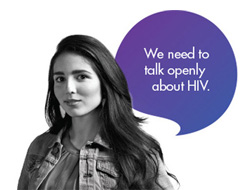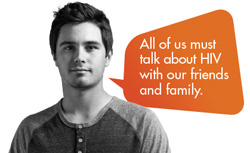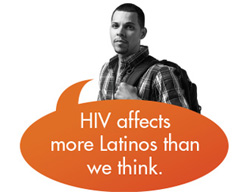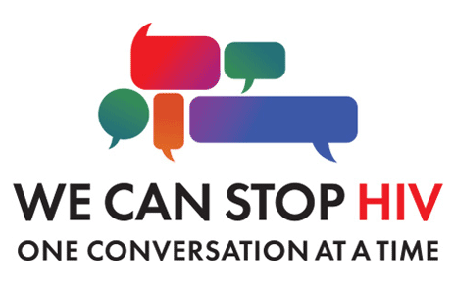Disclosure: This post is made possible by support from the We Can Stop HIV One Conversation at a Time campaign. All opinions are always my own.
As parents, it’s our job to help, protect and guide our children on the right path to be safe, successful and law abiding citizens. It’s also our job to talk to them about how to be safe in their sexual relationships when they’re at the appropriate age or when they’re (gasp) ready.
If parents are not talking to their children about sex, especially HIV and AIDS, they will surely learn about it either at school, from their friends and/ or online. I’m not saying learning about sex from others is a bad thing but I know that the dreaded sex talk can be embarrassing and extremely daunting but it’s best that they hear it from us –their parents. Right?
I can say that my parents spoke to me about sex in their own way. And by their own way, I mean they bought me a ton of books about hormones, “the change”, drugs, sex and all that other stuff. If I had a question about what I read, they would just give me the truth. I guess you can say I’m the same way with my kids but a little more vocal rather than all the books my parents got me. It’s better to hear it from the horse’s mouth, right? =) I’m kidding!
But seriously, it’s so important to become aware and to spread awareness about those topics most people tend to keep on the DL (down-low).
As their parents, we definitely (I hope not!) will not sugar coat anything especially when it has to do with a disease as deadly as HIV/AIDS.
As a Latina Blogger, I’m proud/orgullosa to be a part of the “We Can Stop HIV One Conversation at a Time” Campaign. This campaign hit me personally being that I have a very close uncle who has been living with AIDS for many years. Although he’s on a lot of medication to help control the symptoms and in which will help him live longer, these past few years his health has deteriorated dramatically.
Sadly, we can only stand by him and try to give him love and affection. Like the saying goes: If it’s not one thing, it’s another. I believe wholeheartedly that it’s our job as citizens of this country to spread awareness about the dangers of contracting HIV and AIDS.
We MUST stop the spread of this nasty disease!
One Conversation at a Time, part of the Centers for Disease Control and Prevention’s (CDC) Act Against AIDS initiative, is a national communication campaign that encourages Hispanics/Latinos to talk openly about HIV/AIDS with their families, friends, partners, and communities. This campaign was developed as part of CDC’s overall effort to raise awareness about HIV and reduce new HIV infections among all Americans, especially those hardest hit by HIV. The campaign helps advance the goals of the National HIV/AIDS Strategy, which calls for reducing new infections, reducing stigma and discrimination against people living with HIV and educating Americans about the threat of HIV and how to prevent it.
The campaign features Hispanics/Latinos from culturally diverse backgrounds and highlights important facts and messages to prompt open conversations about HIV/AIDS. One Conversation at a Time is designed to reach and influence Hispanics/Latinos where they live, work, and play in communities across the country. Campaign resources, including this campaign website, provide facts and practical tools and tips about HIV prevention, testing, and treatment.
The One Conversation at a Time campaign is just one resource to help stop HIV among Hispanics/Latinos. Each year, the Hispanic/Latino community is reminded about HIV and AIDS through National Latino AIDS Awareness Day, observed annually on October 15th.
Fact: Hispanics/Latinos account for 19% of the 1.1 million people living with HIV in the United States and 21% of new HIV infections each year.
Although more than 220,000 Hispanics/Latinos are living with HIV, studies have found that many in the community do not talk about HIV risk, prevention, or testing. In fact, a recent study found that only about half (56%) of Hispanics/Latinos have talked with friends or family about HIV in the past year.
Even when Latinos are ready to discuss HIV, many do not have all the knowledge they need to start these important conversations: for example, recent surveys have found that nearly three-quarters of Hispanics/Latinos want more information to help them talk to their children about HIV.
Fact: If current trends continue, an estimated 1 in 36 Hispanic/Latino men and 1 in 106 Hispanic/Latina women will be diagnosed with HIV at some point in their lifetime.
• Visit the One Conversation at a Time campaign website in English and Spanish for facts and practical tools and tips to help families, friends, and communities begin or continue conversations about HIV.
• Join the conversation online.
• Like the Act Against AIDS Facebook Page, share or respond to our posts, and direct your followers to check out our page and our website.
• Talk with us on Twitter. Spark online conversations about HIV/AIDS, using the hashtag #OneConversation and by following our account @TalkHIV.
There’s also a webseries that I found to be very enlightening and inspiring. It’s called Sin Vergüenza (Without Shame). The webseries encourages people to get tested as a routine part of their medical care and to seek HIV medical care should they test positive. This exciting webseries introduces you to dynamic family members who each represent a different age group, sexual orientation and marital status. You’ll quickly learn that each person is at risk of getting HIV. The videos addresses difficult issues that families face, but also portray the unconditional love and support that carries this family through such a challenging time.
Get the facts and tips on how to start your conversation at www.cdc.gov/OneConversation.
To learn more about the telenovela web-series, please visit AltaMed.org.















It is our job to protect our children as parents. We need to start having these conversations early on so our kids know that they can talk to us about anything.
Toughcookiemommy recently posted..Let’s Have An Uncomfortable Conversation @TalkHIV #OneConversation #UnaConversación #Ad
That’s right Maria! If we don’t protect them, who will? Thanks for visiting 😉